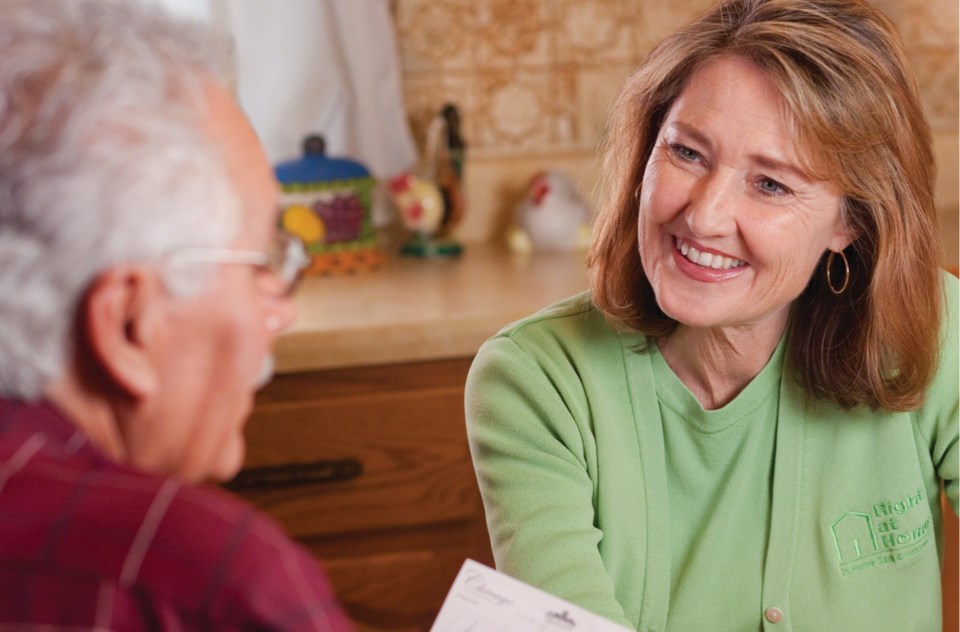The past 18 months have been particularly challenging for seniors, caregivers and their families. There is no question that they were hit hardest by the pandemic and suffered from its constraints disproportionately.
To find out how the pandemic has shaped home care for the future, we spoke with Nancy L. Esson, Community Relations and Office Owner of Right at Home Georgian Triangle. We talked about current attitudes toward long-term care, some of the changes that are already in the works and Esson’s ideal version of post-pandemic home care.
Q: What kinds of changes do you anticipate we can expect to see when it comes to home care for the future?
A: The pandemic has brought a great deal of attention to senior care. There are lots of families who are going to reconsider their options for care for their loved ones. Sadly, the government is not listening to the vast majority of people who when polled say that they would prefer to stay at home if possible, rather than go to long-term care (LTC).
There has been lots of talk about building more homes, when it would be far more cost-effective to provide people with a "care allowance" so that they could self-direct their care.
Last week on the CBC, a panel of experts stated that the Government of Ontario spends approximately $6 billion dollars on LTC homes out of a total healthcare budget of $60 billion—yes, this is 10% of the annual budget—to care for just 80,000 people. This trend is unsustainable.
The growth of homecare in Ontario is skyrocketing and the caregiver shortage is very serious.
Q: Are any of these changes already in the works? Which, if any, have already begun and are underway?
A: People are learning more about their options and some are planning ahead. We provide lots of navigation and information to people who are exploring options for themselves or their loved ones.
The federal government has fast-tracked entry for new Canadians in the healthcare areas, so we are hoping to bring some qualified caregivers into our region.
Q: I’m sure several of these issues have been on your radar for quite some time. What are you happiest to finally see some progress on?
A: Public education through all of the media outlets and social media is improving and this provides more public awareness.
Q: Is there any concern about politics in all of this or are you confident that home care will receive attention—and actual action—regardless of who is in power?
A: No. Homecare Ontario is doing a good job of lobbying. This is a difficult discussion because of Canada's social medical system. Our role as family-paid providers is to complement the government-paid care with family-paid care. There are many situations where the government-paid caregivers are not available, due to volume and need in our community.
Q: What are the most critically needed changes, as you see it, that simply can’t afford to wait?
A: We need to make sweeping changes to the way that care is delivered and paid for. It is significantly less expensive to have help in the home. As I mentioned, the allocation to LTC is too high for the number of people who are residents.
Q: What is your ideal version of home care post-pandemic?
A: We want to see happy healthy seniors in our community.
Our care is focused on a wellness strategy that has 5 pillars:
1. Safety of the seniors in their homes, wherever home is for them
2. Nutrition: Our caregivers make sure that all of the people that they care for have enough fluids and a healthy diet
3. Physical Activity: Our caregivers make sure that our clients are as active as they are able to be
4. Social: We encourage our clients to stay as social as possible, though this has been difficult over the past 18 months
5. Mentally stimulating activities are encouraged for all of our clients, as brain health is very important throughout the various stages of aging.
For more information on in-home care and assisted living services, visit Right at Home Georgian Triangle or call 705-293-5500.
